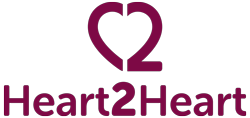Need for families to talk about organ donation as 2,500 potential transplants missed last year - press release from NHS blood & transplant
NHS Blood and Transplant is urging people to talk to their families during Organ Donation Week (September 2 to 8) as figures show around 2,500 organs, each representing an opportunity for transplant, were missed in the last year because families said no to donating their relative’s organs.
Despite record levels of organ donation, family refusals remain the main reason for organ donation not going ahead. In circumstances where a family does not know what their relative wanted, they are far less likely to give their consent to organ donation. Yet a recent survey found that while 84% agreed it was important to let those closest to you know your views on organ donation[1], only 40% had shared their organ donation decision with their family or partner.[2]
Last year, 67% of UK families approached about donation agreed to donate. However, 835 families declined to support organ donation, for reasons other than knowing that their relative didn’t wish to be a donor. The most common reason for those families refusing to support donation, is not being sure whether it is what their relative would have wanted.[3]
In 79 out of the 835 family refusals, the patient had registered or expressed a positive organ donation decision, which the family then overruled, refusing to support their loved ones’ decision. However, for the vast majority, the individual’s organ donation views were not known or not recorded.
If all of those 835 families had supported and proceeded to donation, this could have led to an additional 2,500 extra transplants, based on the average number of transplants per deceased donor over the course of year.[4]
Mikala Waters is backing the call for more families to talk about organ donation, after her younger sister, Tracie, died earlier this year, aged 31, after waiting two and a half years for a kidney and pancreas transplant.
“Watching Tracie go through all she suffered was quite simply heart-breaking for all of us. After her kidney failure diagnosis, Tracie went from being a person who was bubbly, outgoing and full of life to someone who was so very tired all the time and unable some days to get out of bed. Her condition affected the whole family. Everyone’s lives were put on hold while we waited anxiously for the transplant. We all believed that the call would come and it was only a matter of time. When time finally ran out, and Tracie died, we were all left devastated.
“There are thousands of people out there, whose lives have been put on hold while they wait for the call they so desperately need. Sadly, for many like my sister the time will run out. We urge families to talk about organ donation today and hopefully save others from the devastation that our family has faced. We need more donors to save more lives every day.”
Next year, the law around organ donation is changing in England and Scotland. From spring 2020 in England and Autumn 2020 in Scotland, all adults (those aged over 18 in England and over 16 in Scotland) will be considered as having agreed to donate their own organs when they die unless they record a decision not to donate or are in one of the excluded groups. This system was introduced in Wales in December 2015.
In the lead up to the change in law, NHS Blood and Transplant is urging families across England to talk about their organ donation decision, with the campaign message ‘Pass it on’. The Scottish Government also plans to develop a law change awareness campaign as part of their broader awareness raising activities.
Anthony Clarkson, Director of Organ Donation and Transplantation at NHS Blood and Transplant, said:
“Even after the law around organ donation changes in England and Scotland next year, families will still be approached before organ donation goes ahead.
“We urge everyone to register their organ donation decision on the NHS Organ Donor Register and tell your family the choice you have made. If the time comes, we know families find the organ donation conversation with our nurses much easier if they already know what their relative wanted.”
William Moore, aged 70, became an organ donor after collapsing suddenly from a heart attack while waiting for a bus. Although medics battled to save him, a day later, he suffered a bleed to the brain from which he couldn’t recover. His daughter, Angie, explains:
“Within 24 hours, we went from rock bottom to elation thinking Dad would be ok and back to rock bottom. It was such a distressing time. When we were asked about organ donation, it wasn’t something we had discussed and none of us were sure what Dad would have wanted. But he was such a giving and generous man though that after discussion, we decided to agree.
“Later, my husband remembered a conversation with Dad on the golf course. Dad had said something off the cuff along the lines of “They can have anything they like after I am gone; I won’t need it.” For me that was extra reassurance, but mum still had niggling doubts because she hadn’t spoken with him herself.
“Hearing how many lives Dad had saved, confirmed we had done the right thing. I am so pleased we agreed to donate, it has given us so much comfort and I am so incredibly proud of my wonderful Dad. You never know when you might find yourself in a situation like we did, so please don’t wait and talk about organ donation today.”
During Organ Donation Week new radio advertising will launch across England to remind people the law is changing and to talk to their family. There will be events taking place in hospitals and community venues across the country to raise awareness of organ donation and encourage people to make and record their donation decision and to share it with their families.
[1] Organ Donation Attitudinal Tracker, Wave 7, July 2019 – survey of adults in England
[2] Organ Donation Attitudinal Tracker, Wave 7, July 2019 – survey of adults in England
[3] 1,064 families declined to support donation in 2018/19. 229 gave the reason that the patient had previously expressed a wish not to donate. 835 stated other reasons. Organ Donation and Transplant Activity Report, Table 13.10.
[4] In 2018/19, there was a total of 1,600 deceased organ donors, who donated 5,147 organs – an average of 3 organs per donor. If each of the 835 families had consented to donation, and each donor donated 3 organs, that would total a 2,505 additional organs for potential transplant
- NHS Blood and Transplant is a joint England and Wales Special Health Authority. We provide the blood donation service for England and the organ donation service for the UK. We also provide donated tissues, stem cells and cord blood. We are an essential part of the NHS, saving and improving lives through public donation.
- It is quick and easy to join the NHS Organ Donor Register. Call 0300 123 23 23 or visit www.organdonation.nhs.uk
- Families are always involved in organ donation discussions. You can make things easier for your family by telling them you want to donate.
- Every day across the UK people who could have benefited from a transplant die because there aren’t enough organ donors.
- Anyone can join the NHS Organ Donor Register, age and medical conditions are not necessarily a barrier to donation.
- One donor can save or transform up to nine lives through organ donation and save and transforms even more by donating tissue.










